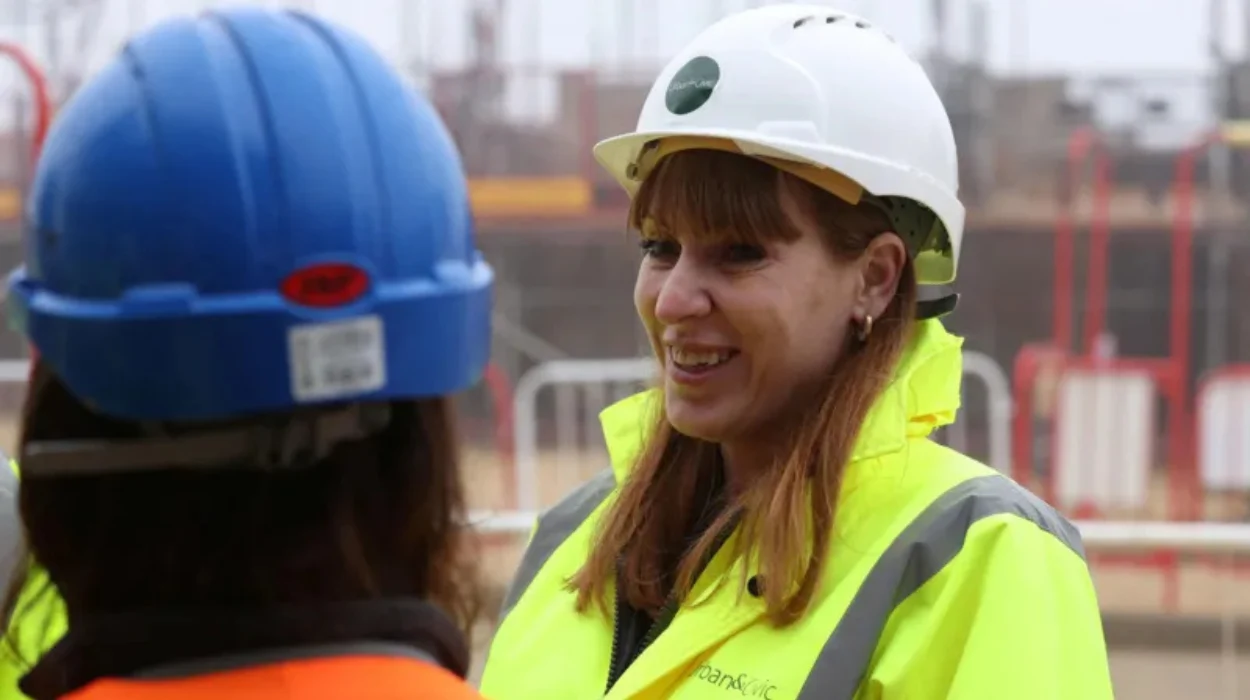London (Parliament Politics Magazine) – Industry experts have warned that Britain does not have the required builders to achieve the homes goal promised by the Labour government.
Leaders from the construction industry told the BBC that thousands of new workers are needed for bricklaying, groundworks, and carpentry to reach the target.
Barratt Redrow, the UK’s biggestconstructor,r and Home Builders Federation (HBF)stated that ad shortage of skills, an ageing workforce, and Brexit were the major reasons for contracting manpower.
The British government admitted there was a huge shortage of construction workers but stated it was taking potential steps to tackle the problem.
Sir Keir Starmer, speaking last week, reaffirmed his promise to construct 1.5 million homes in England by 2029 when he took office in July’s election.
This Thursday, the prime minister revealed extensive changes to the planning system and urged to overrule the “blockers” coming in the way of constructing new houses.
As reported by the BBC, the Labour government believes building new homes will decrease house prices and it will make buying and renting more budget-friendly for younger individuals.
The target includes constructing approximately 300,000 homes in a year, but in recent years the number has been around 220,000.
According to the Construction Industry Training Board (CITB), the projected task force required is to be 2.67 million.
The trade association for the housebuilding industry in England and Wales, HBF, revealed that to build 10,000 new homes, the sector requires around 30,000 new workers covering 12 trades.
The projected number ofworkerse needed for different common trades, on the basis of government proposals, would include 20,000 bricklayers, 2,400 plumbers, 8,000 carpenters, 3,200 plasterers, 20,000 groundworkers, 1,200 tilers, 2,400 electricians, 2,400 roofers, and 480 engineers.
“The capacity to deliver current build levels, tens of thousands of new people will need to be recruited if we are to reach the targets set out,” the HBF stated in a statement.
When asked if there was enough manpower to construct new homes, the CEO of Barratt Redrow, David Thomas, replied, “The short answer is no.”
He added the government must “revolutionise the market, revolutionise planning, revolutionise methods of production” to achieve the goal of new homes.
Home Builders Federation (HBF) has raised concerns about the UK’s inability to meet construction demands due to an “insufficient talent pipeline.” They also pointed to recruitment issues, such as negative perceptions, lack of training in schools, and high costs of hiring apprentices.
The official figures announced an expert bricklayer can earn about £45,000 annually, while carpenters are paid around £38,000 and electricians £44,000.
The lack of skilled workers has long been a concern in Britain foryears;, workers from the European Union helped fill the gap. But, after the end of freedom of movement under Brexit, this recruitment drive has been significantly reduced.
The industry organization, HBF also stated that 40% to 50% of skilled labour had left the building industry after the 2008 financial conflict and “restrictions.”
HBF’s latest census disclosed Romania, India and Poland were the leading countries of origin for the construction manpower coming from abroad.
In November, the government pledged to establish 5,000 new construction apprenticeship places each year and introduced “homebuilding skills hubs” to fast-track training.
The government spokesperson stated the creation of skills hubs is part of efforts to “make sure this country takes skilled careers like construction seriously.”
The Centre for Cities, an independent think tank, has projected that housebuilders will fall 388,000 houses short of the government’s 1.5m target. On Thursday, the government proposed an 82-page National Planning Policy Framework report outlining how it plans to construct 1.5m homes by the end of the parliament.


